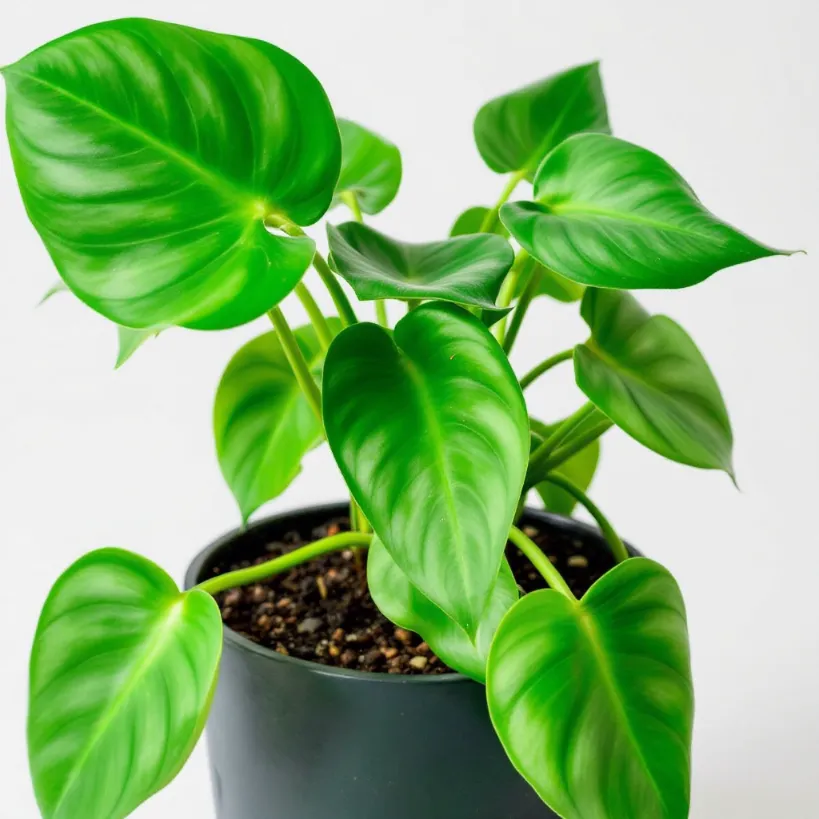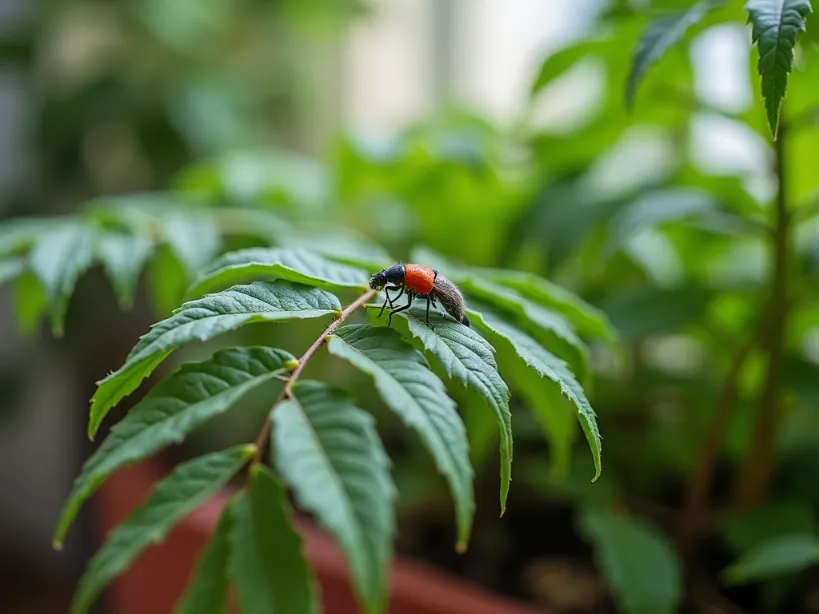So, you’ve got houseplants. Green things. Living things… that attract other living things. Not the good kind. We’re talking pests. Tiny freeloaders that want to suck the life out of your precious greenery. But you’re not reaching for the chemical warfare, are you? No, no, you want Organic Pest Control for Houseplants. This is how to do it, plain and simple. No fancy talk.
Because those little pests? Is awful watch your houseplants for mental health die slow.
Key Takeaways
- Identify the Enemy: Know what you’re fighting. Aphids? Spider mites? Each has its weakness.
- Water Wisely: Don’t drown your plants. Soggy soil is a breeding ground. Most of problems start because watering needs of philodendrons is too much.
- Quarantine New Plants: New plants can be Trojan horses. Keep them separate for a bit.
- Neem Oil is Your Friend: It stinks, but it works. A natural pesticide and fungicide.
- Insecticidal Soap is Simple: Mild soap, water, and a spray bottle. Easy.
- Beneficial Insects are good option, like the nuclear option, but friendlier.
The Usual Suspects: Common Houseplant Pests

There’s a whole zoo of tiny creatures that might want to munch on your plants. Here are the most common criminals:
Aphids
These tiny, pear-shaped suckers come in various colors (green, black, yellow). They cluster on new growth and undersides of leaves. They suck sap, weakening the plant and leaving behind a sticky “honeydew”. You will need to learn how to get rid of aphids on houseplants.
Spider Mites
Almost microscopic. You’ll see fine webbing between leaves and stems. Spider mites on houseplants also suck sap, causing yellowing and speckled leaves. Thriving in dry conditions, it is recommended maintain humidity and spider plants at right levels.
Mealybugs
These look like tiny cotton balls. Mealybugs on houseplants also suck sap and leave behind honeydew. They hide in leaf axils and crevices.
Fungus Gnats
Tiny black flies buzzing around the soil. The adults are annoying, but the larvae feed on roots. Fungus gnats on houseplants a problem, mostly if you overwater.
Scale
These look like small, brown bumps on stems and leaves. Scale on houseplants are immobile, sucking sap and weakening the plant.
Organic Warfare: Methods and Strategies
Forget harsh chemicals. These methods are gentler, safer, and often just as effective.
Manual Removal
The simplest approach. Pick off visible pests with your fingers, or use a strong jet of water to blast them away. This works best for small infestations. It can be a good therapy.
Insecticidal Soap
A classic for a reason. Mix a mild, pure soap (like Castile soap) with water in a spray bottle. Test on a small area first. Thoroughly coat the plant, including undersides of leaves. This is part of caring for house plants.
Neem Oil
Extracted from the neem tree. Neem oil for houseplants disrupts the pests’ life cycle and acts as a repellent. Mix with water and a little soap (as an emulsifier). Smell can be strong.
Horticultural Oil
Refined petroleum or vegetable-based oils. Horticultural oil for houseplants smothers pests. Good for scale and mites. Use sparingly.
Diatomaceous Earth (DE)
Diatomaceous earth for houseplants is fossilized diatoms, ground into a fine powder. It’s abrasive to insects, damaging their exoskeletons. Sprinkle on the soil surface. Food-grade DE is safe for pets and humans.
Garlic Spray
Garlic spray for houseplants can repel some pests. Crush garlic, soak in water, strain, and spray.
Pepper Spray
Similar to garlic spray. Pepper spray for houseplants can deter pests. Use caution – it can irritate your eyes and skin, too.
Essential Oils
Some essential oils, like peppermint, rosemary, and tea tree, have insecticidal properties. Essential oils for houseplants must be diluted with water and a carrier oil before spraying.
Beneficial Insects
Release the good guys! Beneficial insects for houseplants prey on the bad guys.
Ladybugs
Ladybugs for houseplants are aphid-eating machines.
Lacewings
Lacewings for houseplants also love aphids, mites, and other soft-bodied pests.
Predatory Mites
Predatory mites for houseplants are tiny hunters that feed on spider mites.
Homemade Pest Control Sprays
Lots of recipes are available, many people have organic pest control recipes for houseplants. These are general guidelines; always test on a small area first. Creating this is part of caring for house plants.
Prevention is Key
The best defense is a good offense.
- Healthy Plants are Strong Plants: Proper watering, light, and fertilizing philodendron plants for optimal growth, for example, make them less susceptible to pests.
- Inspect Regularly: Check your plants weekly. Catch infestations early.
- Cleanliness: Remove dead leaves and debris. Wipe down leaves periodically.
- Don’t Overcrowd: Good airflow helps prevent pest and fungal problems.
- Choose the Right Soil: Use a well-draining philodendron soil mix to avoid soggy conditions that attract pests.
Dealing with Specific Pests
Here’s some quick advice:
- Aphids: Insecticidal soap, neem oil, ladybugs.
- Spider Mites: Increase humidity, neem oil, horticultural oil, predatory mites.
- Mealybugs: Dab with rubbing alcohol (on a cotton swab), insecticidal soap, neem oil.
- Fungus Gnats: Let the soil dry out between waterings, use yellow sticky traps, apply Bacillus thuringiensis (Bt) to the soil.
- Scale: Horticultural oil, neem oil, manual removal (for small infestations).
If the problem is that the spider plant leaves bending, it’s probably not pests.
Advanced Organic Tactics (For the Truly Dedicated)

Want to go full-on organic commando? Here are some next-level ideas:
- Companion Planting: Certain plants repel pests. Research which plants can protect your houseplants.
- Compost Tea: Brew a “tea” from compost and use it to spray plants. It can boost plant health and provide some pest control.
When to Call it Quits
Sometimes, a plant is too far gone. Severe infestations might require drastic action. If a plant is heavily infested and not responding to treatment, it might be best to discard it. Prevent the spread to your other plants. It’s a tough call, but sometimes necessary. If your spider plant is dying, it may be pests.
References
[1] https://myplantin.com/blog/natural-remedies-for-pest-control
[2] https://plantersplace.com/pest-patrol/diy-pest-solutions-for-indoor-plants/
[3] https://instantplantfood.com/products/instant-plant-protection-4pack
[4] https://www.brightonsavoy.com.au/how-do-you-make-natural-pesticides-for-indoor-plants/
[5] https://plantperfect.com/how-to-protect-your-houseplants-from-pests/
[7] https://www.gardenia.net/guide/keeping-houseplants-pest-free-identification-treatment
[8] https://plantify.co.za/blogs/my-plant-decor/8-homemade-pesticides-sprays-for-indoor-plants
[9] https://www.homesandgardens.com/gardens/homemade-bug-sprays
[10] https://www.houseplant.co.uk/blogs/indoor-plant-care/how-can-i-prevent-pests-on-my-indoor-plants
[11] https://www.gardenersdream.co.uk/blog/2022/11/21/common-houseplant-bugs-5-ways-to-get-rid-of-them/
[12] https://www.pughsgardencentre.co.uk/news/891/recognize-and-prevent-pests-on-indoor-plants